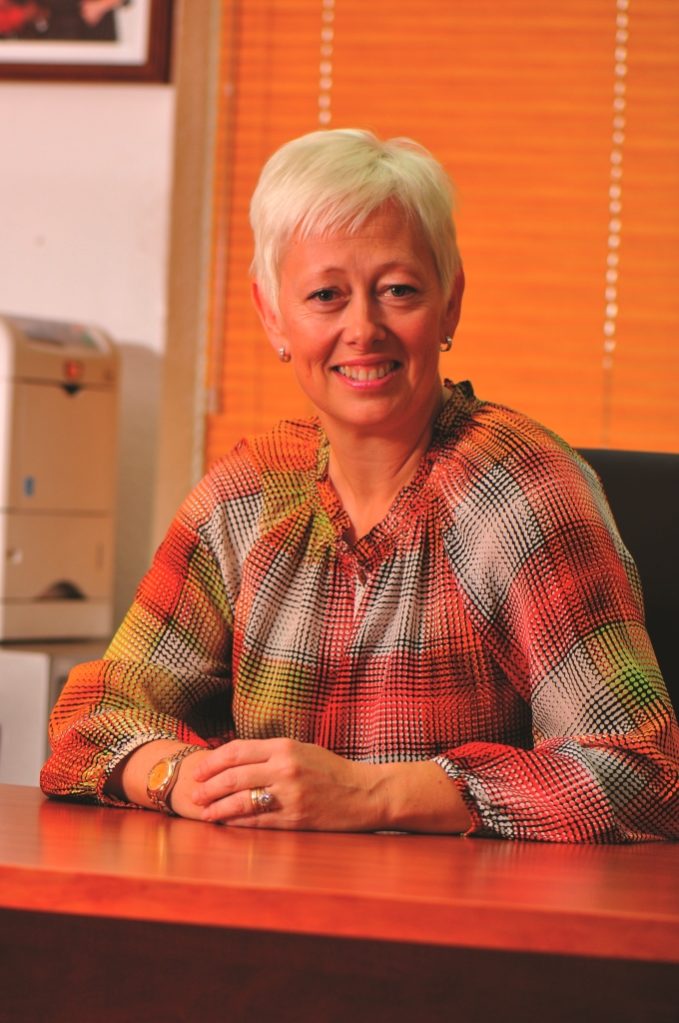Quick! Where is the next investment destination in Africa?
If you follow popular sentiment you’re probably going to say South Africa or Egypt. And if power supply, road networks and telecoms are all you’d go by, you’d probably be right. But consider this from Beverley Spencer-Obatoyinbo, UK-born head of British American Tobacco (BAT) Nigeria.

Mrs Beverley Spencer-Obatoyinbo
“Here in Nigeria there is such massive opportunity for business. There are so many sectors that are completely untapped. If I was working for a different multi-national and I wasn’t working in Nigeria, I would be telling the board that we should be looking at this country, it has massive growth potential and a huge untapped population as well; it should be the gateway for growth in Africa.”
Nigeria’s investment history is littered with success stories and broken dreams. Like cellphone giant MTN, BAT is one of the success stories taking lead of the domestic tobacco market since November 2000. By 2010, BAT held around 70% of the legitimate market.
Loading...
Airline operator Virgin by contrast, didn’t fly.
“So, why did Virgin get it wrong? I suppose it’s a different market, the average consumer in Nigeria can afford to make a phone call because you can break it down, it’s like breaking down soap powder in a box to a sachet, you can’t break down getting on a plane, it is expensive.”
Spencer-Obatoyinbo has worked in Africa for 15 years and has made her mark on the continent’s big three—South Africa, Egypt and Nigeria. After three years as general manager of BAT, she left Egypt for Nigeria just before the revolution gripped the North African country. Previously, she worked in marketing as a distributer and brand marketer. To succeed in Africa, you need an afrocentric business outlook and to stick to the rules and your values, according to Spencer-Obatoyinbo.
“One of the challenges that we often face, I suppose I would talk specifically about where I am at the moment and a lot of people talk about it, is corruption. You need to stand by your values and not be swayed. I think that is a very important thing for me personally,” she warns.
It’s not uncommon in emerging markets that companies and government officials meet behind the scenes to unlock regulatory obstacles. In 2009 KBR, a former subsidiary of Halliburton Co., settled a Nigerian corruption case for $579 million. However the consequences could be dire.
Tobacco regulation is tough because consumption and exposure to tobacco has been proven to have serious health consequences that could lead to death, diseases and disability. Government wants to reduce Nigeria’s smoking rate, which is estimated at 8.6%, according to the World Health Organization (WHO). While the rate might seem low, Nigeria’s population of 162.5 million means that the number of smokers is large. It is estimated that annual cigarette consumption is more than 90 million units.
While the tobacco companies acknowledge that regulation is part of their business, they have advocated for regulation that is balanced and is based on evidence.
“Our main position as BAT Global is that along the way when regulations and laws are made, we would like our voice to be heard because often the laws and regulations are made in isolation of the industry,” says Spencer-Obatoyinbo.
Despite the shortcomings of the tobacco industry, its failure could be a major blow to the fledging Nigerian industrial sector. The industry is a major source of excise duty and employment.
BAT’s business health, buttressed by cost-efficient productivity, is still intact and there are no signs of failure.
“Productivity is a core pillar of the business. Here we have specific challenges because our cost of manufacturing is higher than it would be in other countries so we will be looking for all sorts of ways to be more cost effective. However, there are certain things that we would not compromise on…”
“Our productivity gains is another area. At the factory we are constantly looking for new ways to evolve the way we manufacture, there are also all sorts of productivity gains that we make by reducing our waste. We look at the ways we work with our farmers for example, so that we get better yield on local crops, and there are also little things we do internally with the team, talking about less waste and trying to move slightly towards the green environment, which is difficult when you are running a generator,” she says.
Spencer-Obatoyinbo says there’s more to do. Right now for her it’s about sustaining BAT Nigeria’s success from the last 10 years and to look for new opportunities in West Africa. She admits that it is not going to be easy task considering the insecurity challenges that befell Nigeria and Mali. But Nigeria is where it’s at and she’s pretty sure of that.
Loading...
